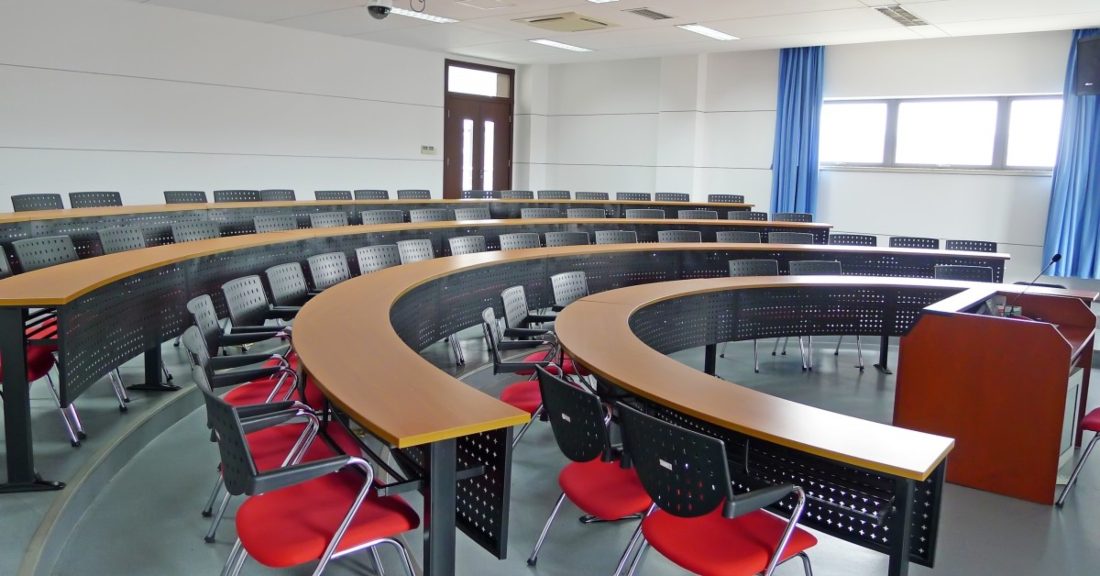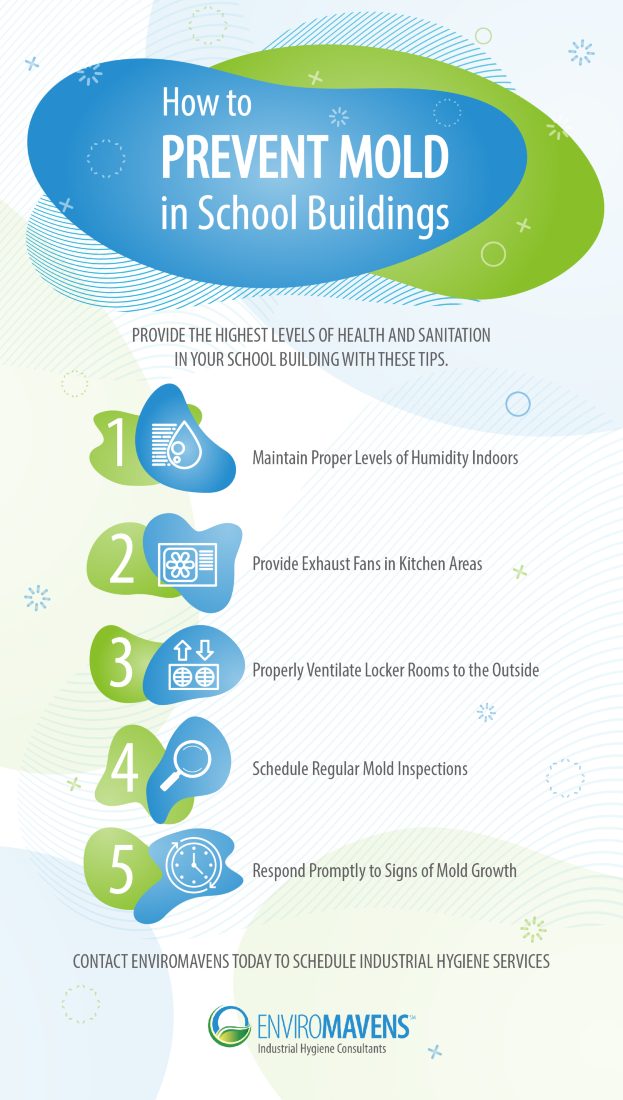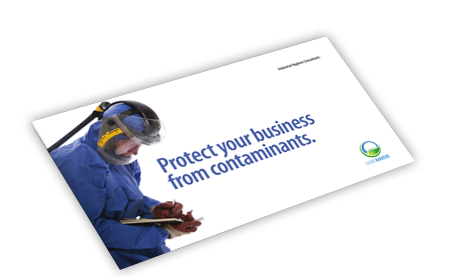
Mold can occur in schools for a variety of reasons, including weather damage, plumbing leaks, poor drainage, and more. No matter the specific cause, it’s important to find the source of the mold and treat it immediately to prevent the further spread or growth of the mold. Since mold is hazardous to the health of everyone who spends time in the school building, you want to be sure to schedule professional treatment to eliminate the mold.
At EnviroMavens, our industrial hygiene consultants are here to help you protect your educational institution from contaminants. We are proud to be a full-service industrial hygiene, asbestos, and microbial abatement organization. Serving the entire state of Tennessee from Jackson to Knoxville, as well as Huntsville, Alabama, we’re here to provide the professional occupational health and safety services you need. Contact us today.

Common Moisture Sources in Schools
Moisture problems in school buildings can be caused by a number of conditions, including:
- Roofing leaks
- Plumbing leaks
- Condensation and excess humidity
- Outdated construction practices
- And more
Humidity is a big part of the weather we experience across the state of Tennessee, which can be problematic if your educational building doesn’t maintain proper humidity levels indoors. Regular inspections of your roof and plumbing equipment will help to head off problems before they become huge issues. If your school building is older, it’s a good idea to have a professional evaluate any outdated construction practices that need to be mitigated to eliminate the possibility of mold growth.
Indoor Humidity
While you can’t control the ever-changing levels of humidity outside, you can control how much humidity exists inside your educational institution. A combination of air conditioners and dehumidifiers can work together to ensure that the air is comfortably cool and at safe humidity levels to deter mold growth.
Make sure that proper ventilation is provided for all indoor areas, especially those prone to higher humidity levels such as kitchens and locker rooms. Kitchens should always have exhaust fans that can be used when active cooking, dishwashing, and cleaning are taking place in food service areas. Even if the industrial dishwasher isn’t being used, you might be surprised just how much moisture can be created from the process of cooking food.
Locker rooms typically include a shower area, which means these closed-in rooms are at a much higher risk for developing mold growth. Make sure that all showers are properly ventilated and that any other moisture-generating sources are also vented to the outside.
Schedule Regular Inspections
Unfortunately, mold isn’t always something you can see. Typically, by the time you do see it, there is quite a sizable mold growth that will need to be dealt with. Regularly inspect your school premises for signs of mold growth to maintain a healthy environment for all who work and study in the building.
- Check for moldy odors
- Look for water stains or discoloration in ceilings, walls, floors, and window sills
- Check under and around sinks for standing water, water stains, or mold growth
- Inspect all bathrooms for standing water, water stains, or mold growth
- Clear out standing water in any air conditioning or refrigerator drip pans
Respond Promptly to Signs of Mold Growth
When it comes to the occupational health and safety of everyone in your school building, you need to act quickly when you discover mold growth. Often, mold grows in areas where you can’t easily see, which means the small amount you do see may be the precursor to a much larger problem. At EnviroMavens, we have the experience and knowledge to provide the effective industrial hygiene services you need to completely eliminate mold from your school buildings and ensure a safe and healthy environment for all who enter. We proudly serve clients across the state of Tennessee as well as in Huntsville, Alabama. Contact us today to schedule your service.
 Visit the EnviroMavens booth #46 at the
Visit the EnviroMavens booth #46 at the



